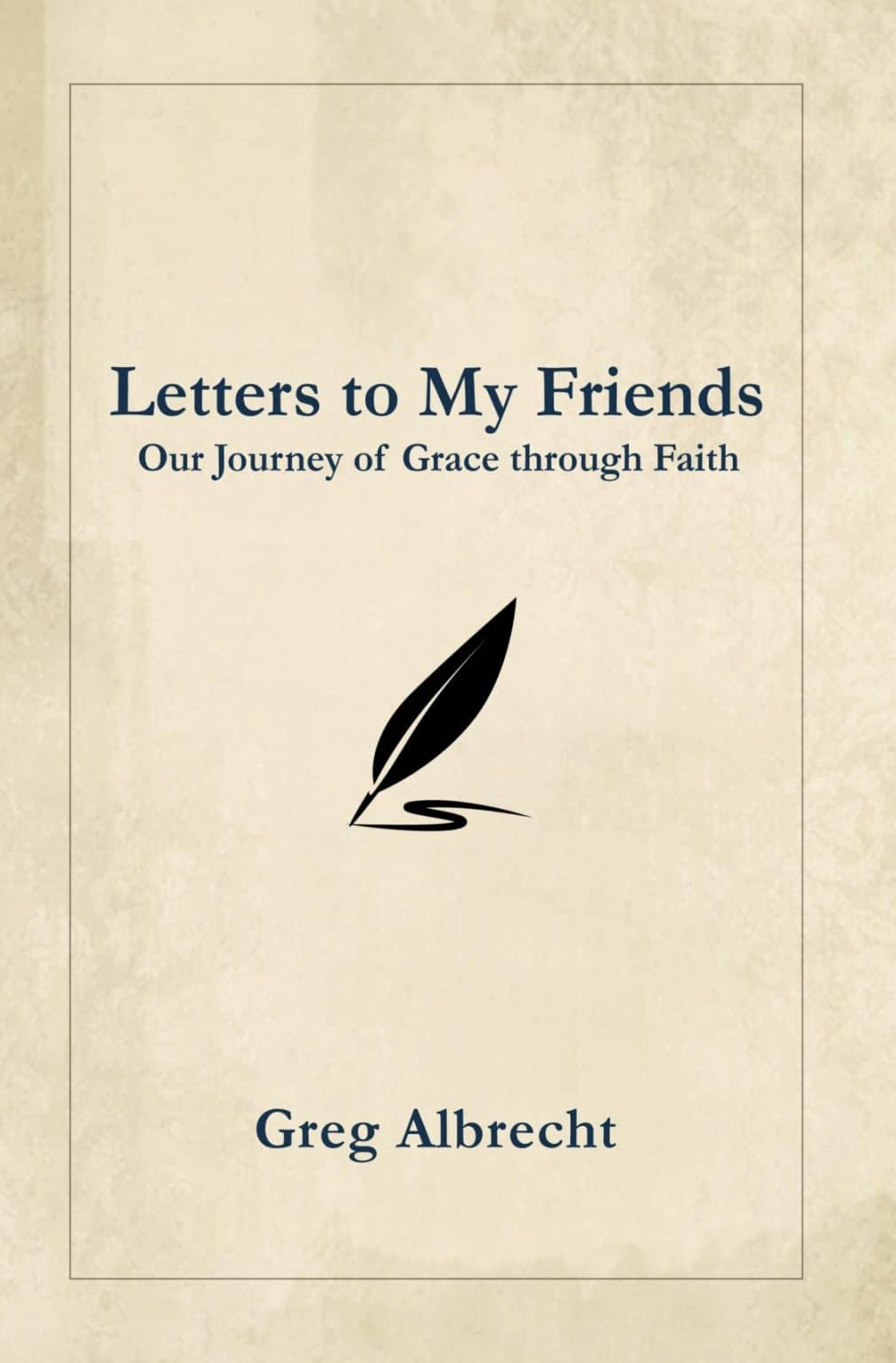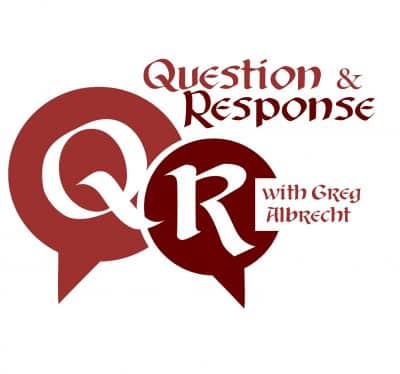Q & R with Greg Albrecht – “Straight and Narrow” – Will only a few be saved?
 Question:
Question:
I have a friend that is obsessed with this idea that few will be saved because of the scripture that says, “Straight and narrow is the road that leads to life and few there be that find it.” How would you respond?
Response:
“Enter through the narrow gate. For wide is the gate and broad is the road that leads to destruction, and many enter through it. But small is the gate and narrow the road that leads to life, and only a few find it” – Matthew 7:13
Several thoughts in response to your question and to your friend’s “obsession.”
Salvation is a gift of God. Salvation, throughout the Bible, both in Old and New Testaments, invariably has God as the subject. We are recipients, if we accept his salvation.
From what does anyone need to be saved? From ourselves, from addictions, from obsessions, from ruthless taskmasters that lead away from God or even do their best to prevent access to God or the Christ-centered revelation of the fulness of God. Humanity is in desperate need of being saved from wrong-headed ideas of who God is and from being seduced into any of a myriad of beliefs and practices that keep them enslaved, addicted and obsessed.
The gospel of Jesus Christ saves us from guilt and shame and self-loathing. We are saved from un-Christ-like religion that presents God as angry and vengeful and never satisfied, so that such a religious god is always in need of being pleased and appeased.
These are but a few of the ideas and philosophies and religious teachings that cause people to understand the Bible in the light of their indoctrination rather than the message that is clearly given. With that in mind, we consider Matthew 7:13:
What, or better said, WHO is the narrow gate. What is the wide gate and broad road? What or WHO is the narrow road?
The world at large, including the vast majority of Christendom, perceives God as unrelenting and overbearing — a stern and strict taskmaster who will not love us unless and until we do a bunch of stuff (specified by a specific religion or denomination within Christendom). So salvation then is something we can gain and acquire through hard work, obedience and faithful performance. Given that mindset a person will interpret the narrow gate and narrow road of Matthew 7:13 as rituals, rites, ceremonies and religious exercises that must be practiced and mastered – and given this passage, it seems like the harder and more onerous the religious pill or prescription or performance, the more likely it is to comport with “God’s will” (a term that is thrown around a great deal) and thus please and appease him.
However, what about the fact that the world at large – all religion, including much of Christendom – perceives God as stern and upset and unyielding, wielding a scourge and demanding harsh and rigorous tasks for those who seek his love and commendation. Jesus talked about many entering through a wide gate and, like a herd of lemmings, crammed in bumper to bumper traffic on the broad religious highway. Further, he said such a road leads to destruction, not life.
If most enter through the wide gate and most travel the broad road, they might think they are on a narrow road and they may assume they have entered through a narrow gate of painstaking toil and endless religious deeds and performances, but they are a majority, not the minority. They may ever hear a message of grace from their religious environment, but the concept of grace is normally devalued into some kind of partnership where one must do his/her best, and THEN God will do his best. The word “grace” might be used and preached in many churches but when the rubber hits the road, it is all about what people/members must do – the grace of God is all about what has been DONE for us, not about what we must do.
Throughout the history of Christianity, where can we find the minority? We find the minority believing in and accepting and trusting in Jesus Christ as sufficient and enough for their salvation. We find the minority truly embracing Jesus as Lord and Savior – the minority turning their back on their precious religion and all the entitlements they believe they deserve — and instead picking up their cross and following Jesus through the narrow gate (and HE IS THE GATE – John 10:7) and along the narrow road (and HE IS THE ROAD – “the way and the truth and the life” (John 14:6).
So entering through the gate of Jesus and following on the road of Jesus is difficult then? Yes, it is. However, it is not difficult in the sense of us working harder and harder and running faster and faster in a vain attempt to earn the approval of our heavenly Father. It is difficult because it means we must surrender our religion – we must surrender our desire to earn our own way and not take any hand-outs, from God or anyone – it is difficult because we must admit to God that we have nothing of any significance nor can we ever earn or produce anything of any eternal relevance that will punch our ticket for salvation.
Salvation is a gift of God, not of works, lest any of us boast, says Paul in Ephesians 2:8-9. Accepting the goodness and grace of God is incredibly difficult because it obliterates any “claim to fame” that we or our denomination or our ceremonies and rituals and deeds might presume to give us. God is not interested in our trophy cases filled with religious deeds. The invitation of the gospel is to accept all that God does for us as all we will ever need and consistently voluntarily embrace what he is doing and what he will produce in our lives, following Jesus. Grace is the narrow way. Humility is the narrow gate. Believing and trusting God, Father, Son and Holy Spirit, implicitly and completely, is a narrow gate and a narrow road and history bears out, as well as our present religious world, that the minority is on such a road.
Hope this helps,
In Christ,
Greg Albrecht
For more answers to tough questions, check out our book:











 Plain Truth Ministries | Box 300 | Pasadena, CA 91129-0300
Plain Truth Ministries | Box 300 | Pasadena, CA 91129-0300

